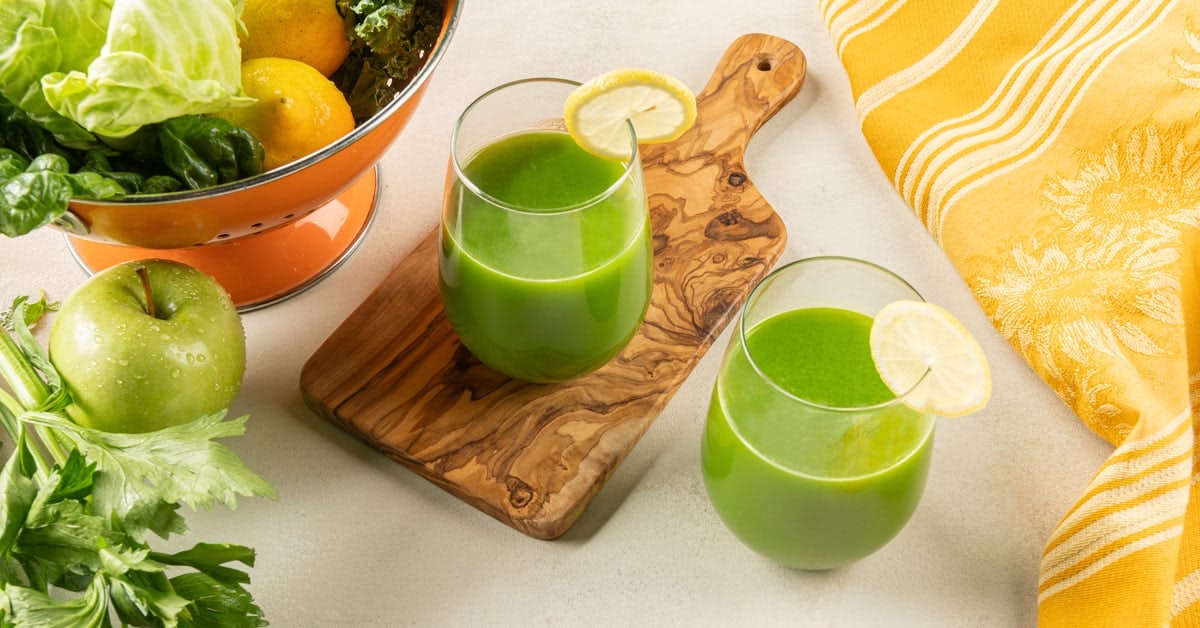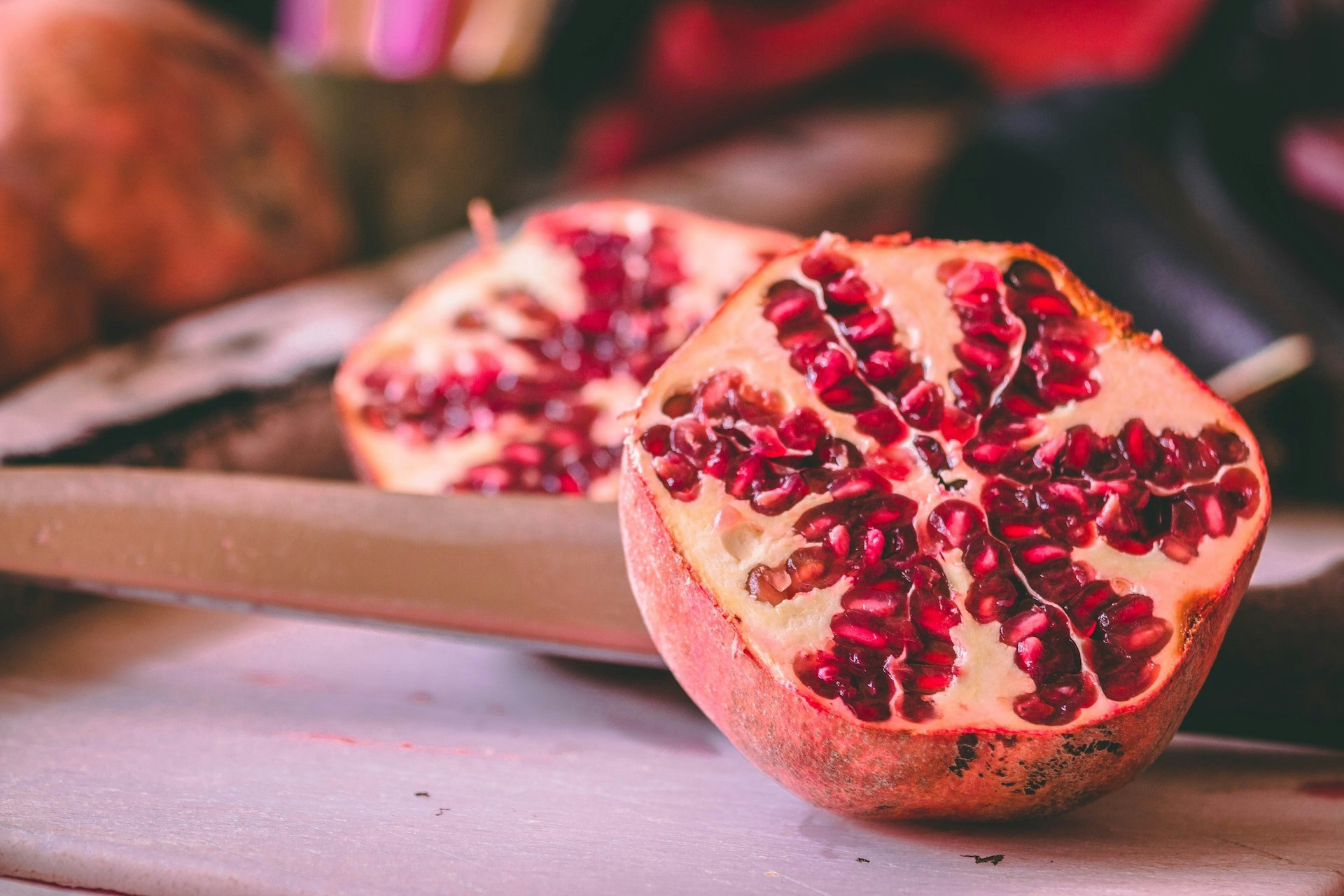
Top 10 Benefits of Drinking Pomegranate Juice
The word “pomegranate” has its roots in medieval Latin and refers to an apple that contains numerous seeds. While it was believed to have originated in Persia, it has now spread to many other countries across the globe. The fruit is highly sought after, and the plant is also cherished for its aesthetic appeal, often being used as a decorative plant in gardens and landscapes. Pomegranate juice has been known for its benefits since ancient times. It was used in Iran to soften meat by marinating it in the juice, and it was also known for its medicinal properties. Pomegranate juice is naturally sweet and contains a variety of antioxidants, fiber, vitamins, minerals, and flavonoids. The Anatomy of a Pomegranate Pomegranates have a distinctive appearance, as they are round and have a thick red skin. Their inner walls are spongy and white, and they contain the arils – white seeds that are covered in thick, ruby red juice sacs. The juice sacs have a delicious sweet and sour flavor, while the seeds are crunchy and edible. Does Pomegranate Juice Include the Seeds? There are various ways to enjoy pomegranate, but the most common way is by eating it handheld. To eat it this way, you simply cut open the fruit and pull it apart to reveal the seeds and juice sacs. Alternatively, you can remove the seeds and press them to extract the juice. If you ever visit Turkey, you'll be impressed by how quickly they juice pomegranates using a pomegranate press right on the streets. Not only is it delicious, but it also provides numerous health benefits. Pomegranate juice can contain seeds, depending on how it is processed. The seeds, known as arils, are surrounded by juicy pulp. Some methods of juicing remove the seeds and pulp, resulting in seedless juice. However, many commercially available pomegranate juices include the arils and pulp, which provide a more authentic and nutritious experience. These juices may have a slightly pulpy texture and small, soft seeds. If you prefer a smoother juice without seeds, specifically labeled “seedless” options are available. Like many other fruits and vegetables, clear pomegranate juice doesn't contain the same amount of fiber as pomegranate arils. When making juice, crucial nutrients such as fiber and vitamin C are lost. However, if you enjoy drinking seedless pomegranate juice, you can still reap the benefits of its antioxidants, essential nutrients like potassium, and other health advantages. The Benefits of Drinking Pomegranate Juice Undoubtedly, these fruits are stunning, but their beauty isn't merely superficial. In this article, we will discuss how these succulent and delightful fruits can enhance your diet and why their seeds are as beneficial as their juice. Let’s get right to it. Pomegranates provide a nutrient boost. They are a great way to get your daily dose of vitamin C, vitamin K, and potassium, along with other essential nutrients. Consuming a single pomegranate provides you with approximately 28mg of vitamin C, which is almost half of what you need each day. However, the vitamin C content is reduced when juiced. A pomegranate also contains around 666 mg of potassium, which is 19% of your daily recommended intake. After the juicing process, about 536 mg or 15% of your DRI is retained. Potassium is vital for maintaining strong nerves and a healthy heart. By consuming fresh pomegranates or their juice, you can easily get the necessary amount of this crucial mineral. 1. Antioxidant Powers Pomegranate arils contain polyphenol antioxidants, which are known for their ability to fight unstable molecules that can damage cells over time. These unstable molecules are called free radicals. Anthocyanins, a type of flavonoid and one of the two classes of polyphenols, are found in pomegranate arils. Research has linked anthocyanins to potential health benefits such as lowering blood pressure and slowing cancer growth. The ruby color of pomegranates is due to the presence of anthocyanins and the deeper the color, the more antioxidants the fruit contains. It's therefore not surprising that deep red pomegranates are a great source of antioxidants. 2. Heart Health Studies have found that consuming pomegranate juice can improve heart health by reducing cholesterol levels, lowering blood pressure, and enhancing overall cardiovascular function. It may also promote blood flow and prevent arterial plaque formation. Additionally, pomegranate's antioxidant properties may help improve oxidative stress factors, which are associated with chronic diseases such as diabetes and heart disease. Researchers have observed that pomegranates and pomegranate juice can provide significant benefits for individuals with heart conditions such as high blood pressure, coronary artery disease, and atherosclerosis. 3. Anti-Inflammatory Properties Pomegranate juice is known to have antioxidants that can help reduce inflammation in the body. Chronic inflammation can lead to health problems such as heart disease, cancer, arthritis, and non-alcoholic fatty liver disease. Moreover, initial research suggests that the juice may also help with inflammatory diseases like rheumatoid arthritis, inflammatory bowel disease, and osteoarthritis. 4. Cancer Prevention Some studies suggest that pomegranate juice may have anti-cancer properties. Its high antioxidant content helps inhibit the growth of cancer cells and may reduce the risk of certain types of cancer, such as skin, breast, prostate, and colon cancer. 5. Digestive Health The U.S. Department of Agriculture states that a serving of pomegranate arils contains four grams of fiber, which is roughly 15% of the recommended Daily Value (DV) for adults. Insoluble fiber is the main type of fiber found in pomegranates. Insoluble fiber helps keep our digestive system healthy by promoting regular bowel movements. It also helps to stabilize blood sugar levels and keeps us feeling full and satisfied after meals. 6. Cognitive Function According to certain studies, consuming pomegranate juice may have a positive impact on one's memory and cognitive abilities. Experts believe that its antioxidants could safeguard the brain against oxidative stress and lower the chances of neurodegenerative illnesses such as Alzheimer's Disease. 7. Promotes Weight Loss According to research, pomegranates have been utilized to aid in weight loss on many occasions. This is due to the fruit's high fiber content. Additional studies have indicated that pomegranate and its extracts may contribute to weight management and fat reduction. However, more human research is required to comprehend its potential fully in preventing obesity. In studies involving mice, pomegranate seeds, and particularly the extract of pomegranate leaves, were discovered to encourage fat loss. This could be a promising development in the pursuit of healthy weight loss. 8. Kidney Health Around 11% of men and 6% of women in the U.S. experience kidney stones, which are small rocks that can form in the kidneys. If not treated, they can cause serious kidney complications, including blood in the urine and severe pain. However, there is evidence to suggest that pomegranates can be helpful in preventing and managing kidney stones. This is due to the presence of antioxidant dietary phytophenols, which have been found to be effective in preventing the formation of stones, according to a study. 9. Oral Health New research has confirmed that pomegranates are great for improving gum health and helping to secure loose teeth. They are also useful in fighting against oral bacteria due to their antimicrobial properties. Studies have also indicated that pomegranate seeds can be beneficial for reducing the number of microorganisms in dental plaque. 10. Endurance and Sports Performance Pomegranates have some compounds that can enhance endurance and recovery. A study on humans showed that taking only 1 gram of pomegranate extract half an hour before running boosted the time taken to get exhausted by 12%. Other research done on humans has also indicated that supplements of pomegranate have the ability to increase both exercise endurance and muscle recovery. Potential Side Effects of Drinking Pomegranate Juice While pomegranate juice can provide several key health benefits, and it can be consumed in moderate amounts is most likely safe for most people. But certain people should exercise caution. Allergic Reactions It is possible for certain individuals to develop an allergy to pomegranates and pomegranate juice. This can lead to symptoms such as hives and throat constriction. If you have concerns about the possibility of an allergic reaction, it is recommended that you consult your doctor. Medication Interaction It's important to be aware that pomegranate juice could interfere with some medications, particularly those used for managing high blood pressure or blood thinning. Prescription drugs such as Coumadin, Vasotec, Altace, Zestril, and other ACE inhibitors may fall under this category. Diabetics If you have diabetes or need to monitor your blood sugar levels, you can definitely incorporate pomegranates into your diet. To further regulate your blood sugar, it's recommended to pair the arils or juice with a protein and/or fat source, such as yogurt. Conclusion In summary, pomegranate juice is a nutritious and delicious beverage that offers many health benefits. It is high in antioxidants, helps to reduce inflammation, can lower cholesterol, and may even reduce the risk of certain types of cancer. Pomegranate juice is also a great way to stay hydrated and maintain overall bodily health. By adding pomegranate juice to your diet, you can improve your health and wellbeing.
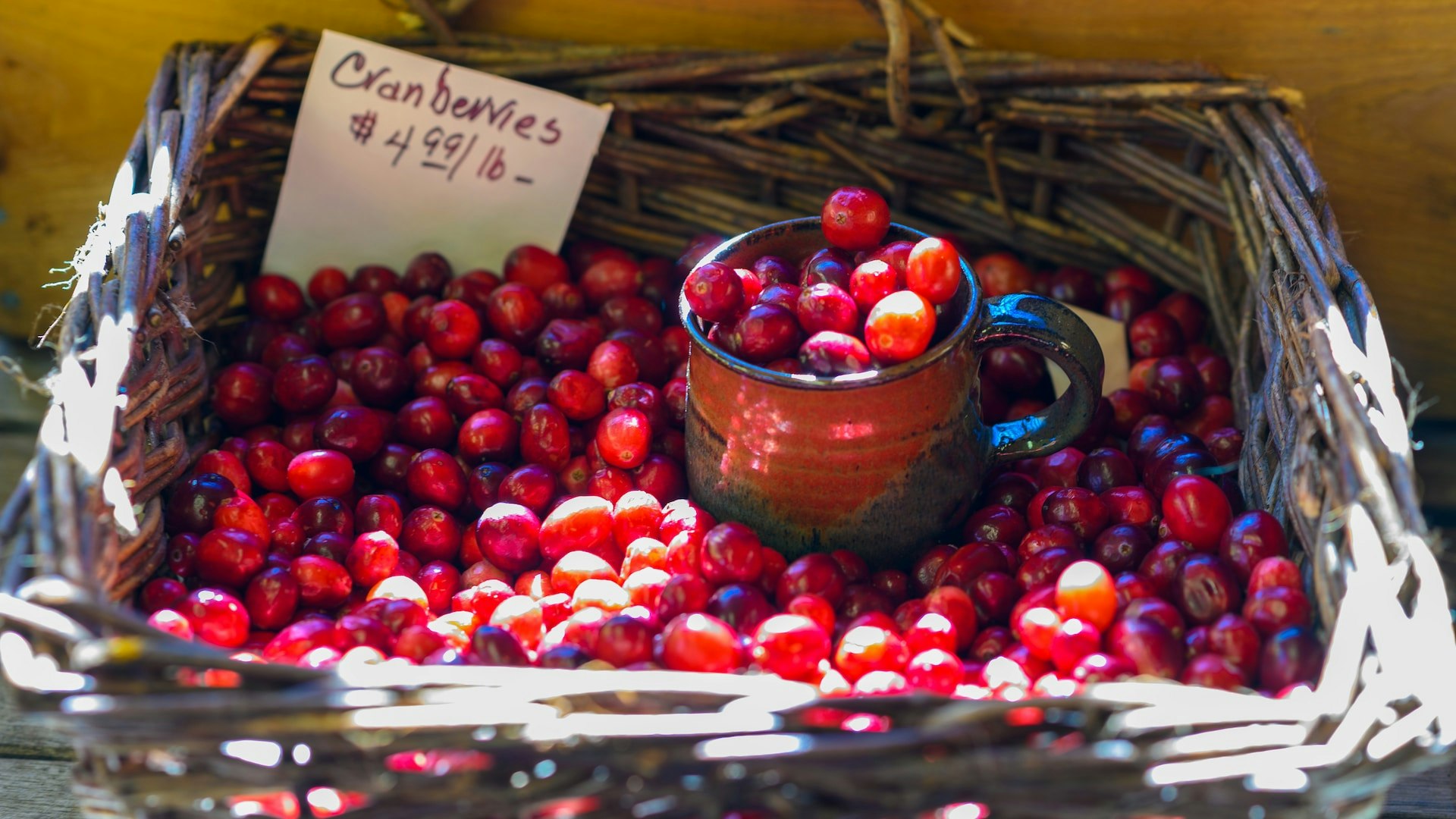
Top 10 Benefits of Drinking Cranberry Juice
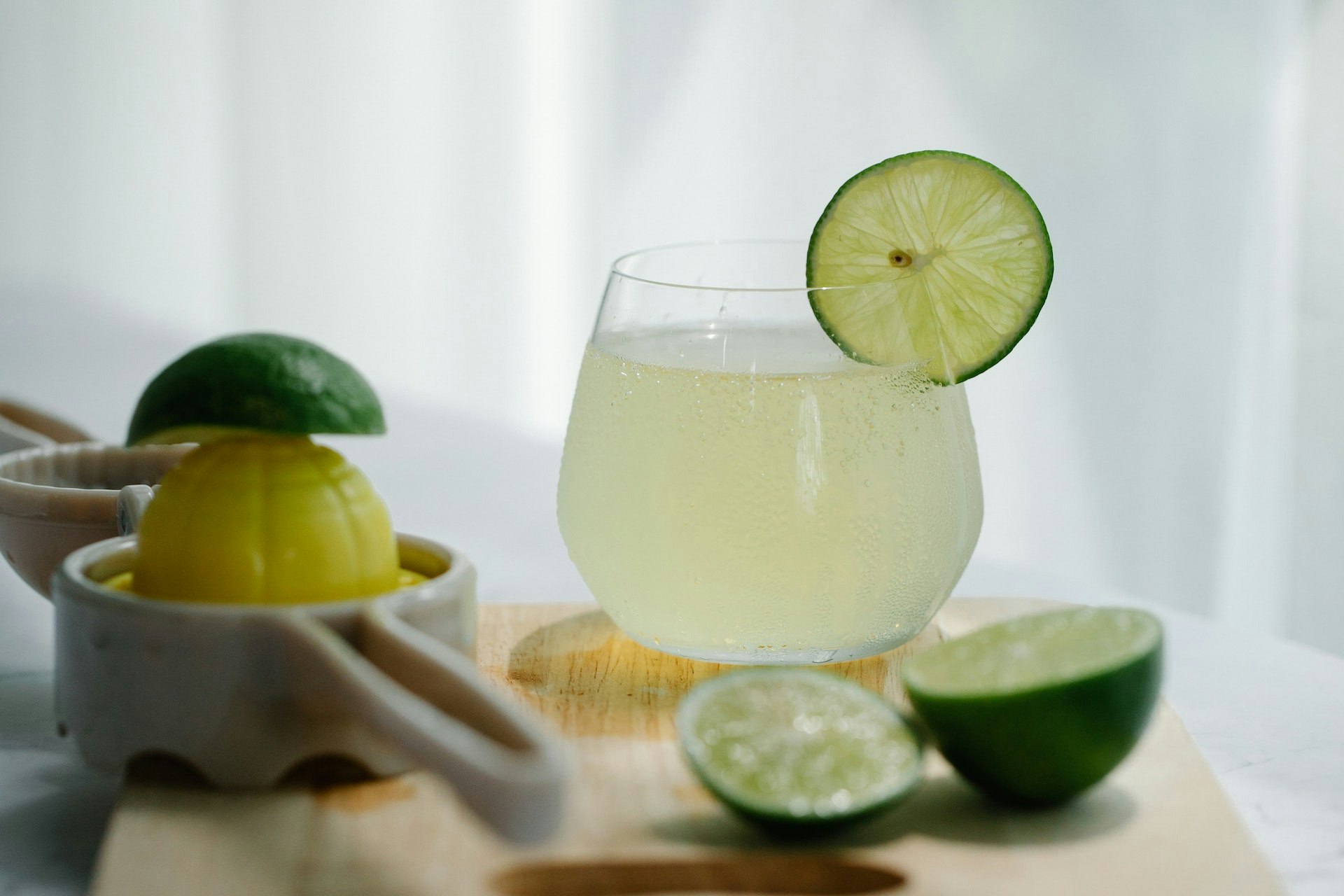
Does Lime Juice Go Bad? How Long Does It Last?
Yes, lime juice can go bad. Fresh lime juice lasts about 2 to 3 days in the fridge. As with all fruit juices, it has a limited shelf life and will spoil eventually. But did you know that bottled lime juice can last for months in the fridge? This is because the acidity of the lime juice helps preserve it and prevents bacteria growth. Pretty cool, right? If you're curious about how long different types of lime juice last and how to keep it fresh for longer, keep reading! Types of Lime Juice How long your juice lasts depends on a few things: how you store it, whether you squeeze it yourself or buy it from the store, and how it's preserved. Cold-Pressed or Fresh Squeezed Lime Juice If you love making homemade lime juice, then listen up. Freshly squeezed lime juice tastes the best when consumed immediately. However, if you can't finish it all, you can store it in the fridge for up to 2 to 3 days before it starts to lose its flavor. But, get this—fresh limes can last for up to 15 days in the fridge. So, instead of making a bottle of lime juice and keeping it as an alternative to store-bought versions, it is better to keep fresh limes in the fridge ready to be juiced. This way, you can make fresh lime juice whenever you want, without worrying about it losing its flavor. Unopened Store-Bought Lime Juice If you happen to buy lime juice that comes in bottles or tetra packs cartons from the store, it's likely to last longer than homemade lime juice. You can easily check the “best by” or “expiration” date on the packaging to know how long it's recommended to consume the product for best quality. And, if you haven't opened the lime juice yet, you can store it properly, and it should last for several months beyond the printed date. Opened Store-Bought Lime Juice So, here's the thing about lime juice: once you pop that bottle open, it starts to lose its freshness pretty quickly. That's because it's exposed to air and can get contaminated. To keep it tasting its best, it's a good idea to store it in the fridge and use it up within a week or two. If you're not using it very often, you might want to grab the smallest container available. Just make sure to read the label for any special instructions or warnings about how to store and use it. Just a quick heads up, these are just general guidelines to keep in mind when checking the shelf life of lime juice. It's always a good idea to double-check the expiration date and take any specific recommendations or variations into consideration. And don't forget to trust your senses – give it a sniff, a taste, and a look to make sure it hasn't gone bad. What the Dates on Juice Labels Really Mean So, you might be wondering if it’s safe to use your lime juice after its “expiration” date, right? Well, the truth is, those dates on store-bought juice containers are just recommendations. In the case of lime juice, it’s usually labeled with terms like “Best By,” “Best if Used By,” “Best Before,” or “Best When Used By,” which basically just gives you an idea of when it’ll taste its best. But don’t worry, as long as your bottle is undamaged, and you’ve stored it properly, you can still use it after that date. Of course, the color and flavor might change a bit after a while, but that doesn’t mean it’s unsafe to consume. Just make sure there are no signs of spoilage, and you’re good to go. Hey, did you know that there's one date on food products you should never ignore? It's the “Sell By” date. All the other dates printed on the packaging are based on that date. So, if you see that the “Sell By” date has passed, it's best not to buy that food product. Tell-Tale Signs of Lime Juice Spoilage So, you know how lime juice can last longer than other juices, but it can still spoil, right? Well, here's the deal: lime juice is pretty acidic, which makes it harder for bacteria to grow. But if you leave it out of the fridge or in a warm spot, it won't be long before it starts to go bad. That's why it's important to know what to look for when figuring out if it's time to toss that lime juice. Smell Test If you're wondering if your lime juice has gone bad, the easiest way to check is to give it a good sniff. If it smells funky or off in any way, it's probably not good to use. The smell of citrus is usually a dead giveaway when it comes to freshness. So, if you've had that bottle of lime juice open for a while, make sure to take a whiff before using it. If it doesn't smell like fresh limes, it's time to toss it out. Your lime juice should have a strong and pleasant scent that's refreshing and citrusy. Your senses will usually let you know if something's not quite right with your lime juice. Taste Test So, even after sniffing the lime juice, you're still not sure if that lime juice is still good to drink or not? Take a tiny sip and see how it tastes. If it's not sour enough or just doesn't taste like lime, it's time to say goodbye. Trust me, you don't want to risk getting sick from a bad batch of lime juice. Color Change Many people worry about their lime juice changing color and getting darker. But don't fret, just because the color has changed doesn't mean it's spoiled – as long as there are no other warning signs. It's actually a natural process and completely normal. So, if your lime juice still tastes good, then it's all good. However, even if your lime juice hasn't spoiled, it can still lose its flavor over time. It's a gradual process, but eventually, the juice won't taste as fresh as it used to. So, make sure to use it up before it reaches that point. Can Old Lime Juice Make You Sick? Did you know that consuming expired, or old products can be dangerous? Even if it's something as simple as lime juice. Whether you bought it from the store or made it at home, if it's been sitting in your fridge for too long, it could be contaminated with bacteria or toxins. This can lead to symptoms of food poisoning, which we definitely don't want. So, be sure to always practice food safety and give your products a quick inspection before using them. It's better to be safe than sorry. How to Keep Lime Juice Fresh for Longer Have you ever thought about freezing lime juice? It's actually a pretty cool idea and super easy to do at home. All you need is a freezer and an ice cube tray. If you've just squeezed some fresh lime juice and want to save it for later, you can store it in the freezer for up to four months. Just remember to strain it first, then pour it into ice cube trays and freeze. Once frozen, you can transfer the cubes to a freezer-safe bag or container. And if you've got bottled lime juice lying around, you can freeze that too! Just make sure the bottle is tightly sealed and has room for expansion. You can even pour it into ice cube trays if you like. With these simple tips, you'll never have to worry about wasting lime juice again. If you find you have more lime juice than you can use, we recommend trying one of our delicious juice blends as well. How Best To Defrost Frozen Lime Juice If you've got frozen lime juice, and you're ready to use it, here's a quick tip. It's best to let it thaw in the fridge for a few hours instead of trying to speed up the process. This way, it will thaw nice and slow, and you won't have to worry about any weird flavors creeping in. Conclusion In a nutshell, lime juice can spoil if not kept in the right conditions. Depending on how much you use, you might want to consider buying a bottle of lime juice or keeping a few limes in the fridge. But here's the thing – store-bought lime juice can actually last a while even after opening it. It's also cost-effective. However, nothing beats the punchy and flavorful taste of fresh lime juice. If you're not a huge fan of lime juice and only use it occasionally, fresh limes are your best bet. To sum it up, both store-bought and freshly squeezed lime juice can go bad. Freshly squeezed doesn't last as long due to the absence of preservatives, but the taste is totally worth it.

Does Orange Juice Go Bad? How Long Does It Last?
Yes, orange juice can go bad. How long it lasts is determined by: if it's freshly squeezed or commercially processed, pasteurized or unpasteurized, and how it's stored. We've all been there – you have a container of OJ in the fridge, and you're not quite sure if it's still good to drink. Well, we're here to help! In this article, we'll discuss how long orange juice lasts and what factors can affect its shelf life. We'll also give you some tips on how to tell if your orange juice has gone bad and how to prevent it from spoiling. Types of Orange Juice to Consider These days, you have a ton of options when it comes to choosing your OJ. You can go for canned, sugar-free, freshly squeezed, or cold-pressed. All of these options have a fairly short shelf life, and if you don't store them properly or use them within a couple of days of opening, they can turn bad pretty quickly. This is true even for cold-pressed juice or homemade OJ. The good thing about making your own juice is that it doesn't have any artificial preservatives or additives. This does mean it's more prone to bacterial growth and will spoil faster than the store-bought stuff, but will always have more nutrients and a much fresher and better flavor. So, how long can you keep your orange juice fresh? Well, it really depends on a few factors. The type of juice you buy, where you store it, and whether you've opened the package all play a part. If you're drinking a commercially produced juice, you can usually find a use-by date marked on the package, which is a pretty good indicator of how long it will stay fresh. Cold-Pressed and Freshly Squeezed Orange Juice Nothing beats the taste of fresh, natural cold-pressed orange juice. It has the best flavor, most nutrients, and makes for incredibly tasty juice blends. However, it does not have a long shelf life. Once it's been out for a while, pesky bacteria start to grow, and it spoils faster than other types of processed OJ. If you keep it in the fridge, it'll last for about 2 to 3 days tops. And if you leave it out at room temperature, you've only got about 2 hours before it's no good. Luckily, this isn't a problem if you drink it up right away. That shouldn't be difficult with the right delicious recipe. Boxed and Bottled Orange Juice There are two types of orange juice available in bottles and cartons – refrigerated and off-the-shelf unrefrigerated. Each type has its own shelf life. First, there's refrigerated orange juice. You can't leave this stuff out of the fridge for too long, or it'll go bad. Just like freshly squeezed OJ, it'll only last around two hours at room temperature. But if you keep it in the fridge unopened, you're good for about 1 to 2 weeks, or the printed use-by date. Once you crack that seal, you've got 8 to 9 days before it starts to turn. Unrefrigerated orange juice can last for 3 to 9 months if it's still sealed up tight. But once you open it, you'll want to stick it in the fridge and drink it up within 8 to 10 days as well. Canned Orange Juice Have you ever wondered why canned orange juice lasts so long? Well, the secret lies in the additives and preservatives it contains that prevent it from getting spoiled quickly. The orange juice is pasteurized, which means it's heated before being sold to kill any harmful bacteria. While this makes for a shelf-stable juice, it also can break down orange juice's nutrients and affect the flavor. The shelf life can vary from brand to brand, but in general, unopened cans or bottles can last up to a year if stored at room temperature. Although it may still be safe to drink after several months, the taste may not be as delicious as it was in the beginning. So, it's best to consume it within 4 months for the best taste. Once opened, it's best to consume within 8 to 10 days if refrigerated. Concentrated Orange Juice Orange juice concentrate is usually frozen to keep it fresh for a really long time. All the water is removed before it's compressed and canned or bottled. If you don't crack it open, it can last a very long time frozen. But, if you do decide to thaw it out for a refreshing glass of OJ, it'll only keep in the fridge for about a week. Keep in mind that once you thaw it, you can't refreeze it. Signs of Spoilage Orange juice tastes the best when you squeeze it fresh or crack open a new pack, but it won't stay fresh forever. If you leave the opened juice unused for too long, it'll probably spoil. If orange juice has spoiled, it means that the juice has either been invaded by microbes or has been ruined by oxidation. Here are the tell-tale signs that your OJ is no longer drinkable: First off, if you notice the packaging is bloated, that's a clear indication that there's some gas buildup inside, meaning the juice has gone bad. Keep an eye on the color. If it starts to look pale or darker than usual, it's definitely seen better days. Don't forget to smell it! Fresh orange juice has a distinct fresh scent, but if it smells rancid, rotten, or like vinegar, it's a no-go. Check for mold too. If you see any white or green growth on the surface, toss it out immediately – it could be harmful to your health. Sediment is also a good indicator of spoiled juice. While some pulp is normal, lumps in a clear liquid are not. Lastly, give it a small taste test. If it doesn't taste like it should, with a sour or bitter flavor, it's time to say goodbye. Bottom Line To get back to the original question about whether orange juice goes bad, the good news is that it doesn't, as long as you store it correctly and use it within the recommended time. But let's be real, sometimes you just can't drink it all at once. So, whether you prefer pulp or no pulp, there are ways to store it based on how you plan on drinking it later. Just remember, the fresher, the better!
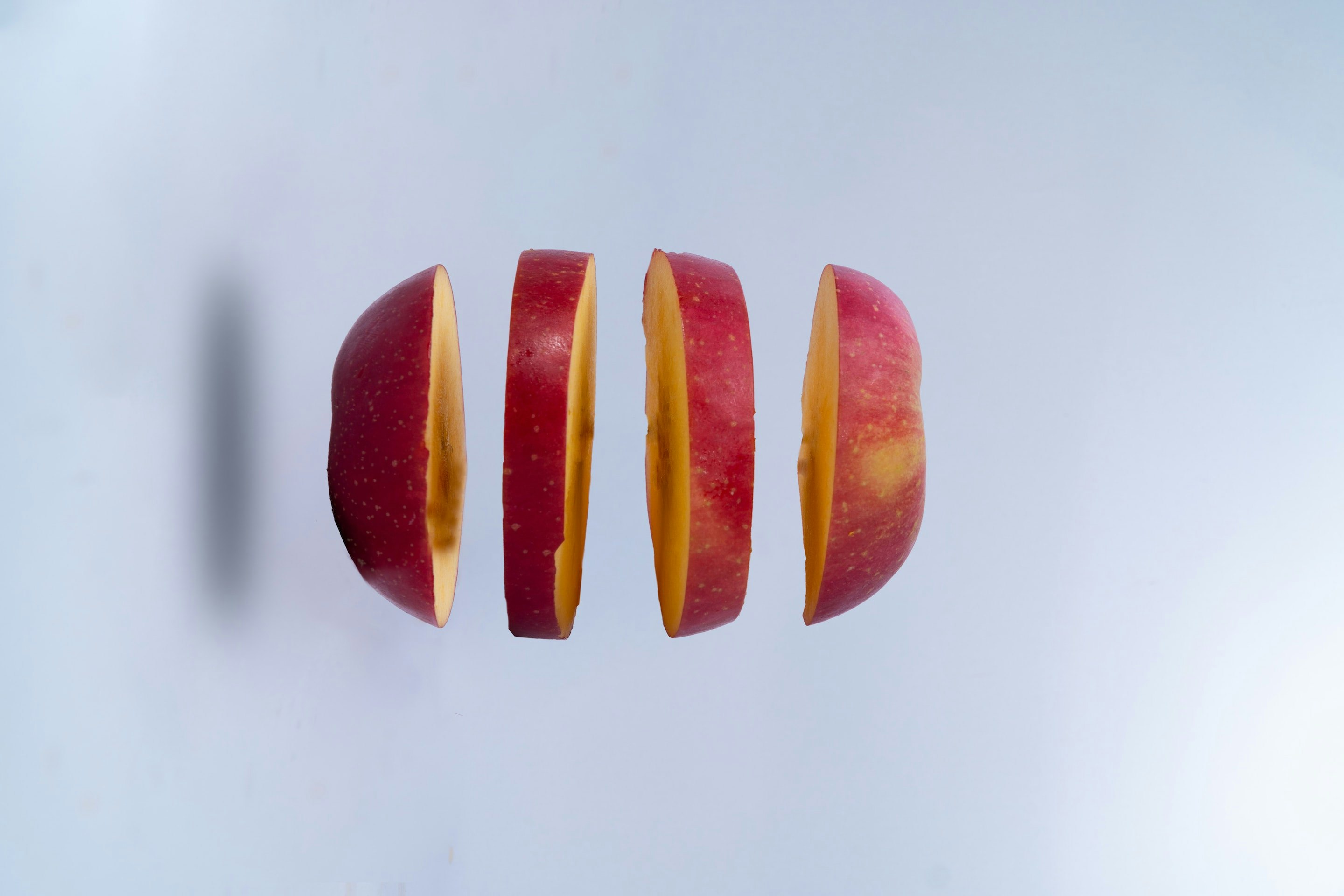
Does Apple Juice Go Bad? How Long Does It Last?
Yes, apple juice can go bad, especially if it's not handled or store properly. Store bought apple juice typically lasts 8-10 days if store properly. Are you wondering if apple juice can go bad? Do you sometimes reach for a bottle of apple juice only to pause and ask ourselves if it's still safe to drink? It's a valid question and in this article, we'll answer the questions: Does apple juice go bad? How long does it last? We'll also discuss how to store apple juice properly to make it last longer and stay fresher. Can Apple Juice Go Bad? If you gave in to the temptation of buying a whole gallon of apple juice just because it was on sale at the grocery store, you may not be able to finish it all before it starts to go bad. Just like any other fresh juice, apple juice can go bad if you leave it for too long. The shelf life of the juice, however, really depends on a few factors to determine how long apple juice can last, For instance, did you make the juice using a cold-pressed method or did you blend fresh apples in a liquidizer? Alternatively, did you purchase commercially processed apple juice that is either pasteurized or unpasteurized? The Rule of Thumb for Storing Apple Juice Now, when it comes to the right storage of store-bought apple juice, just store it in the way you found it in the store. If it was refrigerated, then refrigerate it. If it's unrefrigerated, you can store it in the pantry for a few days as long as the container is sealed. And, if you got a frozen apple juice product, just keep it in the freezer until you're ready to use it. Easy, right? Cold-pressed or homemade apple juice must be refrigerated. Types of Apple Juice to Consider Nowadays, you've got loads of choices when it comes to apple juice. You can grab canned, sugar-free, freshly squeezed, or cold-pressed. The only catch is that they all have different shelf lives. Also, if you don't keep them stored correctly or use them up within a couple of days, they can go bad pretty quickly. This applies to cold-pressed or homemade juice even more. The good thing about making your own is that you don't have any yucky preservatives or additives, and a better taste and more nutrients are kept in tact. But unfortunately, that also means it's more likely to go bad faster than the store-bought kind. The factors that determine how long your juice lasts are : the type of juice you purchase, where you keep it, and whether you've opened it. If you've bought a juice from the store, you can usually find a use-by date on the packaging, which will give you a good idea of how long it will stay fresh. Cold-Pressed and Freshly Liquidized Apple Juice Honestly, there's nothing quite like the taste of fresh-pressed or freshly squeezed apple juice. But, let's face it, the downside is that it doesn't last long. Once it's been sitting out for a while, bacteria start to grow, and it spoils faster than other types of apple juice. If you pop it in the fridge, you've got about 2 to 3 days to enjoy it before it turns. But, if you leave it out at room temperature, you've only got a couple of hours before it goes bad. It's best to drink it up as soon as you can after pressing it. This shouldn't be a problem, especially if you opt for one of our delicious apple juice blends. Boxed and Bottled Apple Juice You've got two choices for apple juice options found in stores: refrigerated or unrefrigerated. Each has a different shelf life, so let's break it down. Refrigerated apple juice needs to stay chilled, or it'll go bad quickly. Like fresh squeezed juice, it'll only last about two hours at room temperature. But if you keep it unopened in the fridge, it'll stay good for around 1 to 2 weeks. Once you open it, you've got about 8 to 9 days before it starts to turn. On the other hand, unrefrigerated apple juice can last for 3 to 9 months if it's sealed properly. But once you crack that seal, you'll want to drink it up within 8 to 10 days and keep it in the fridge. Canned Apple Juice Have you ever thought about why canned apple juice lasts for so long? Well, it's all thanks to the special ingredients and preservatives that keep it from spoiling quickly. The juice is pasteurized, which means that it's heated up before being canned to kill off any harmful bacteria. While this leads to a longer shelf-life, it sadly can degrade the nutrients in apple juice and affect the taste, especially compared to cold-pressed. The shelf life can vary depending on the brand, but generally, unopened cans or bottles can last up to a year if stored at room temperature. However, after a few months, the taste may not be as yummy as it was when you first bought it. So, to get the best flavor, it's best to drink it within four months. Once opened, it's best to finish it within 8 to 10 days if you keep it in the fridge. Concentrated Apple Juice Apple juice concentrate is usually frozen to keep it fresh for a really long time. All the water is removed before it's compressed and canned or bottled. If you don't crack it open, it can last very long time under stable conditions. But, if you do decide to thaw it out for a refreshing glass of apple juice, it'll only keep in the fridge for about a week. Keep in mind that once you thaw it, you can't refreeze it. Signs of Spoilage Would you be able to tell if your apple juice has gone bad? Well, one way to check is by giving it a sniff. If it smells sour or like beer or wine, it's definitely started fermenting, and you should toss it out. Another clue is if you see small bubbles or the juice looks a bit cloudy, those are also signs of fermentation, and it's best not to drink it. As time goes on, the color of the juice may also change and become darker, which is another indicator of spoilage. And if you see any mold growing in the juice, definitely steer clear of that one. If you notice the bottle is swollen or the lid makes a popping sound when you open it, those are clear signs that the juice has gone bad, and you should get rid of it right away. Always be sure to check your apple juice before taking a sip. In a Nutshell Apple juice won't go bad if you keep it stored properly and use it before the recommended time. But let's face it, we all have those moments where we can't finish the whole carton in one go. A friendly reminder: the fresher the juice, the better the taste!
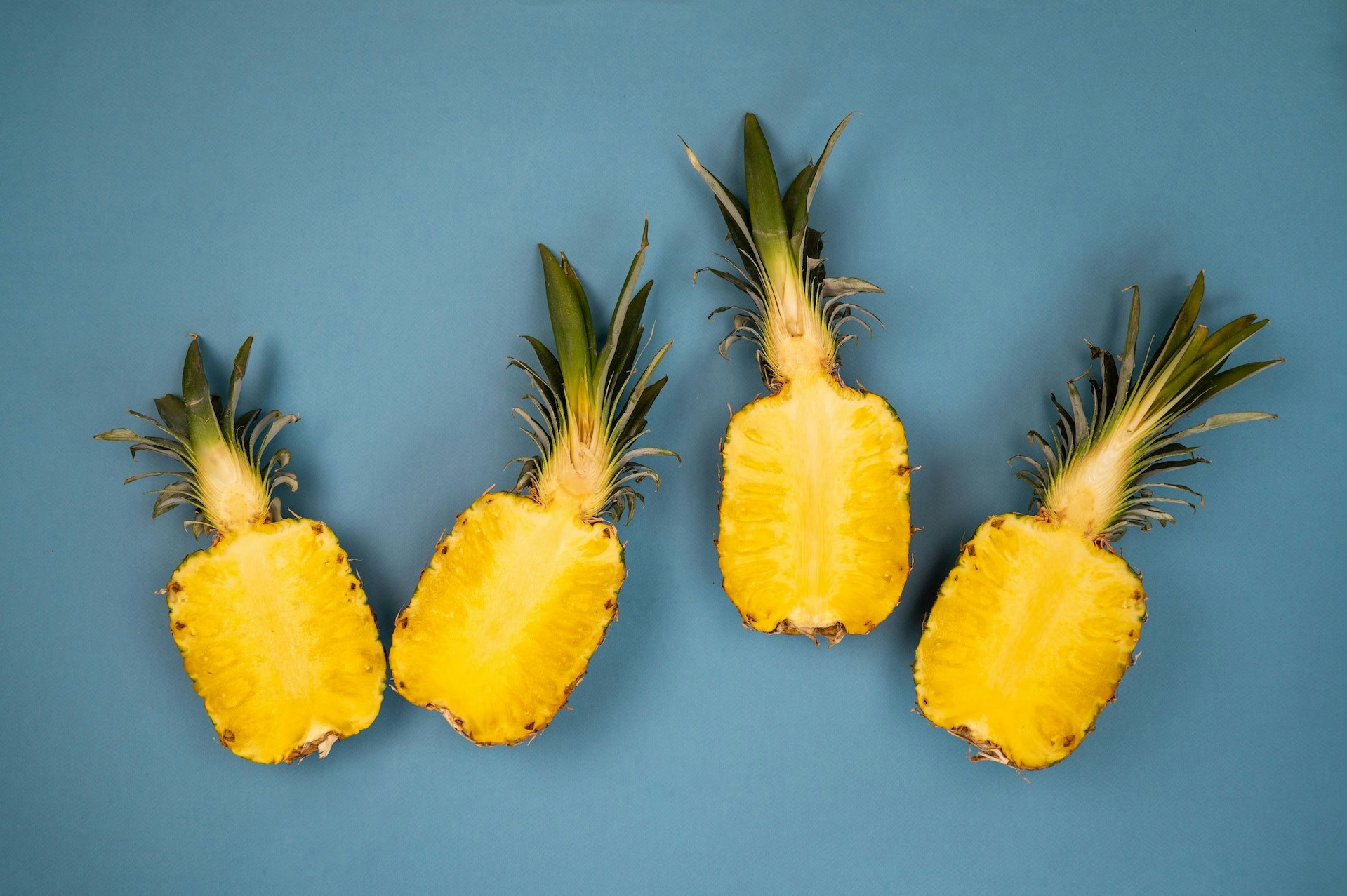
Does Pineapple Juice Go Bad? How Long Does It Last?
Yes, pineapple juice can go bad, especially if it’s not stored correctly. It has a shorter shelf life compared to other juices. Have you ever picked up a bottle of pineapple juice and wondered if it could go bad? If not stored or handled properly, any juice can go bad, but pineapple juice does indeed have a shorter shelf life compared to other juices. Why, you may be asking? We've got you covered! In this article, we'll tackle all your burning questions about pineapple juice – How long does it last? How can you tell if it's gone bad? And why is it so darn perishable? Plus, we'll give you some tips on how to store it properly to keep it fresh for longer. So, let's dive right in. Why is Pineapple Juice More Perishable? Pineapple juice doesn't last as long as other juices because it has natural acids and enzymes. These enzymes, like bromelain, can break down proteins and cause the juice to spoil faster. Plus, the high acidity in pineapple juice can make it more prone to bacteria and fungus growth. So, if you're comparing it to juices with lower acidity like apple, or orange, pineapple juice might not stay fresh for as long. To make pineapple juice last longer, manufacturers often use a process called pasteurization or heat treatment to eliminate bacteria and enzymes. If you store it in the fridge at temperatures below 40°F (4°C), it can help preserve its quality and slow down spoilage. But keep in mind, the shelf life of any juice can be affected by different factors like storage conditions, preservatives, and how it was made. So, it's always a good idea to check the expiration date and follow the storage instructions from the manufacturer. Storing Pineapple Juice Okay, let's talk about storing store-bought pineapple juice. Here's a simple tip: keep it the way you found it in the store. If it was in the fridge, store it in the fridge. If it wasn't refrigerated, you can keep it in the pantry as long as it's sealed. And if you bought frozen pineapple juice, just pop it in the freezer until you're ready to drink it. Now, if you made your own pineapple juice or purchased cold-pressed juice, remember to refrigerate it as soon as possible. Types of Pineapple Juice to Consider There are a ton of options out there when it comes to pineapple juice. You've got canned, sugar-free, freshly squeezed, or 100% fruit juice to choose from. However, there's a bit of a catch – none of them except canned have a long shelf life. If you don't store them properly or drink them within a couple of days, they'll go bad in no time. Even cold-pressed or homemade juice can't escape this rule. Making your own juice is great because there are no icky preservatives or additives, but it also means it's more prone to spoiling quickly. If you've bought juice from a store, just check the use-by date on the packaging. It'll give you a rough idea of how long it can last. In general the things that affect this time are the type of juice, where you store it, and if you've opened it or not. Cold-Pressed and Freshly Liquidized Pineapple Juice Freshly made pineapple juice is simply amazing, don't you think? The downside is that it doesn't stay fresh for long. Bacteria begin to grow very quickly once it's out for a while, ruining its taste. If you refrigerate it, you have around 2 to 3 days to drink it up. However, if you leave it at room temperature, it will spoil in just a few hours. So, it is suggested to enjoy it as soon as you can after you’ve liquidized it. Luckily, if you make a delicious cold-pressed pineapple juice blend, you'll likely drink it in no time. Boxed and Bottled Pineapple Juice Let's go over the different options available for pineapple juice at the store. Basically, you have two choices: refrigerated or unrefrigerated. Each of them has a different shelf life. If you go for refrigerated pineapple juice, you'll need to keep it chilled, or it'll spoil pretty quickly. Just like fresh squeezed juice, it won't last more than a couple of hours at room temperature. However, if you keep it unopened in the fridge, it'll be good for about 1 to 2 weeks, or whatever the "Best-By" date lists on the package. Once you've opened it, it'll last for 8 to 9 days before it starts to go bad. On the flip side, unrefrigerated pineapple juice can last for 3 to 9 months when it's sealed correctly. But once you've broken the seal, make sure to drink it within 8 to 10 days and store it in the fridge. Canned Pineapple Juice Have you ever wondered why canned pineapple juice lasts so long? Well, it's all thanks to some special ingredients and preservatives that help keep it from spoiling too soon. To make sure it's safe to drink, the juice is pasteurized, which means it's heated up before being canned to kill off any harmful bacteria. While this keeps it shelf stable, it can also affect the taste and it's overall nutrient content. Now, the shelf life of canned pineapple juice can vary depending on the brand, but generally, unopened cans or bottles can last up to a year if stored at room temperature. But, after a few months, the taste might not be as yummy as it was when you first bought it. So, if you want to enjoy the best flavor, it's best to drink it within four months. And once you open it up, try to finish it within 8 to 10 days if you store it in the fridge. Concentrated Pineapple Juice Pineapple juice concentrate is the last type of pineapple juice on the market and is a unique one. Basically, to keep it fresh for a long time, it's frozen with all the water removed before being canned or bottled. The good news is, it can last a long, long time if you keep it frozen and don't open it. However, if you do thaw it out for a nice cold glass of juice, it'll only stay fresh in the fridge for about a week. And once it's thawed, you can't freeze it again. Signs of Spoilage Have you ever wondered how to tell if your pineapple juice has gone bad? Well, it's not as complicated as you might think. Firstly, look for any leaks or damage to the container – that's the first red flag. Then, give it a sniff. If it smells sour or fermented like beer or wine, it's gone bad, and it's best to throw it away. Also, keep an eye out for small bubbles or cloudiness in the juice – those are signs of fermentation and should also be avoided. Over time, the color of the juice may change and become darker, which is another sign of spoilage. And if you notice any mold growing in the juice, steer clear of it. If the bottle is swollen or the lid pops when you open it, it's time to say goodbye to that juice. So, always check your pineapple juice before taking a sip, and you'll be good to go! Freezing Your Pineapple Juice Want to keep your pineapple juice fresh for longer? Here's a cool tip – just freeze it. Whether it's fresh or pasteurized, all you need to do is pour it into an airtight container with a bit of space at the top for expansion. Now, when you're ready to use it, simply pop it in the fridge to defrost. Doing this will give you an extra 3 to 5 days before the juice goes bad. But, if you thaw it in the microwave or cold water, make sure to use it right away. What Do the Dates on Juice Labels Really Mean? Have you ever wondered if it's okay to drink your pineapple juice even after the “expiration” date? You may have heard that the dates on food and juice containers are just recommendations. Pineapple juice is usually labeled with terms like “Best By,” “Best if Used By,” “Best Before,” or “Best When Used By,” which simply give you an idea of when it'll taste the best. The good news is, you can still use it even after that date, as long as it's undamaged and stored properly. The taste and color may change a bit, but it's still safe to consume as long as there are no signs of spoilage. By the way, there's one date you should never ignore – the “Sell By” date. All the other dates printed on the packaging are based on that date, so if it's passed, it's best not to buy the food product. Bottom Line Pineapple juice is a great way to enjoy a tropical flavor all year round. However, compared to other juices, pineapple juice is more perishable. If you see it has been sitting in your fridge for too long, it may be time to toss it out, or you run the risk of getting a sour and off taste.
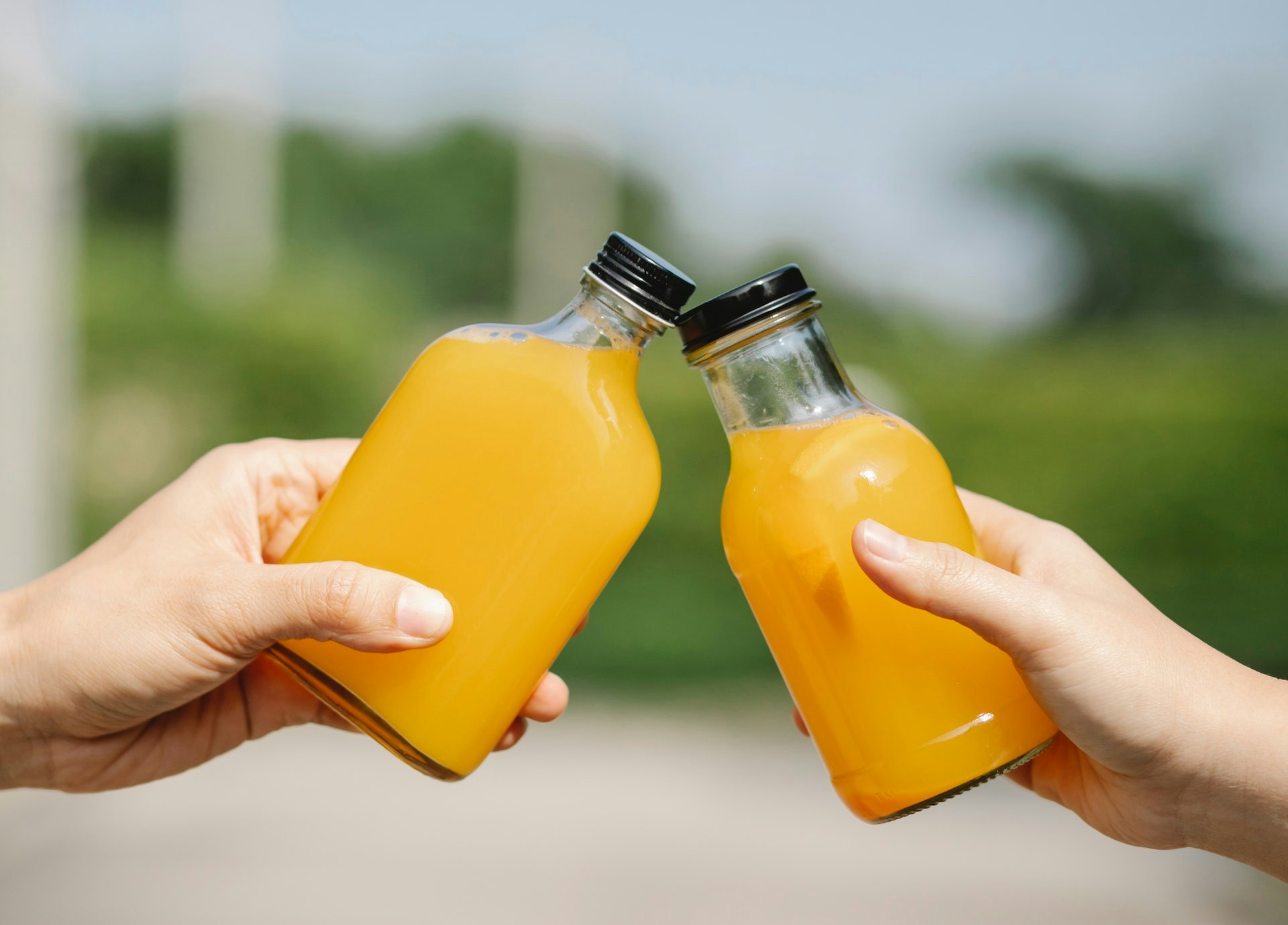
How Much Sugar is in Orange Juice? What About Added Sugar?

Does Lemon Juice Lighten Your Hair?
Yes, the high citric acid content in lemons can lighten your hair. Here's the science behind it – lemon juice has strong acids that can act as a natural bleach. When you put it on your hair and let it soak up some sun, the acid and sunlight work together to lighten hair. How Does it Work? So, here's the deal: when you apply lemon juice to your hair, it basically breaks down the outer layer of each strand. This process reduces the color and reveals the lighter shades underneath. And after three to four applications, you'll start to see that brighter, lighter look you're after. However, it is best to speak to a hair care professional to determine if this is a healthy option for your hair and scalp. Keep it Natural One thing to keep in mind is that the lemon juice you buy from the store can have a bunch of chemicals in it that may effect the results. It's best to just stick with the natural stuff and squeeze your own lemons for the juice. That way, you'll get the results you want without any unnecessary additives. As a bonus, did you know that many fruits and vegetables can promote hair growth? Here are our favorite juice blends for healthy, glowing hair. Steps to Follow So, you want to lighten your hair with lemon juice? Here's what you need to do: First, grab a chamomile tea bag and steep it until it's nice and strong. Let it cool down a bit and mix it with some lemon juice – use two parts tea water to one part lemon juice. Pour the mixture into a spray bottle and saturate your hair with it. Now, here's the fun part – go outside and let the sun do its magic! Spend at least one hour in the sun. The citric acid in the lemon juice, combined with the sunlight, will help lighten your hair. After you've had enough sun, make sure to rinse your hair thoroughly with water once it's dry. One thing to keep in mind is that lemon juice can dry out your hair, so you'll want to follow up with a moisturizing treatment or conditioner. And there you have it – a natural way to lighten your hair with just a few simple steps. For a delicious final step, use any unused lemons to make a refreshing and detoxifying charcoal lemonade. Just a heads-up, the amount of lightening you get from lemon juice may differ based on your hair's color, texture, and natural pigmentation. Lemon juice generally works best on lighter hair shades like blonde or light brown. If you have darker hair, the lightening effect might not be very noticeable. However, redheads can expect a nice pop of brightness and vibrancy with a lemon juice treatment, and if they stick with it, they could even get bold gold results. If you want to achieve noticeable results, you'll need to apply lemon juice to your hair multiple times. But be careful not to go overboard as excessive use can cause dryness and damage. To prevent this, give your hair a break of 3–4 weeks between each lightening session. If you're after more reliable or dramatic results, it might be worth investing in professional hair-lightening products or consulting a professional hair colorist. Other Hair Benefits Offered By Lemon Juice Did you know that lemon juice can do more than just lighten your hair? It's true – lemon juice has some other great benefits for your hair. Firstly, because lemon juice is acidic, it can help balance the pH on your scalp. This means that it can reduce itchiness, dryness, and flaking when used in moderation. Secondly, lemons have antifungal properties, which means that lemon juice can help treat seborrheic dermatitis, a common cause of dandruff. Lastly, lemons can even help reduce excess oil on your scalp. And don't forget - when you consume lemon juice, it’s a great source of vitamin C, which can strengthen your hair and promote growth. Who knew lemons were so versatile?

Does Lemon Juice Break a Fast?
Lemon juice by itself is unlikely to break a fast as lemon juice has very few calories and carbs. If you only consume a little bit in your water while fasting, it probably won't make a big difference. Since an ounce of lemon juice contains around 8 calories, and one rarely consumes a whole ounce of lemon juice at once, it may not break a fast. Keep in mind that the definition of “fasting” can vary depending on what you're trying to achieve. When fasting, you typically don't eat anything that contains a significant amount of calories for a certain period of time. The main aim of fasting is to cut down on calorie intake and trigger specific metabolic processes in your body, like autophagy and ketosis. Intermittent Fasting If you're planning to try intermittent fasting, which involves specific periods of fasting and eating, having a bit of lemon juice during the fasting window may not hinder the benefits of the fast. But, keep in mind that even a small amount of calories can technically break the fast, so it's important to be mindful of what you consume. Does Lemon Water Break a Fast? Drinking lemon water in the morning has been a trendy habit that people have been following for years. It has become popular for its detoxifying and hydrating benefits and has become a favorite drink for those who practice intermittent fasting for their health benefits. Having one or two glasses of lemon water while following intermittent fasting can also aid in fat burning and reducing hunger. Simply put, lemon water does not break a fast. It has very few calories and no sugars, so it won't raise your insulin levels and mess with your fasting goals. Bottom Line When it comes to having lemon juice while fasting, the results can differ depending on your fasting plan, what you want to achieve, and your unique circumstances. If you have any doubts or specific dietary needs, it's best to speak with a healthcare expert or a registered dietitian who can help you with personalized advice.
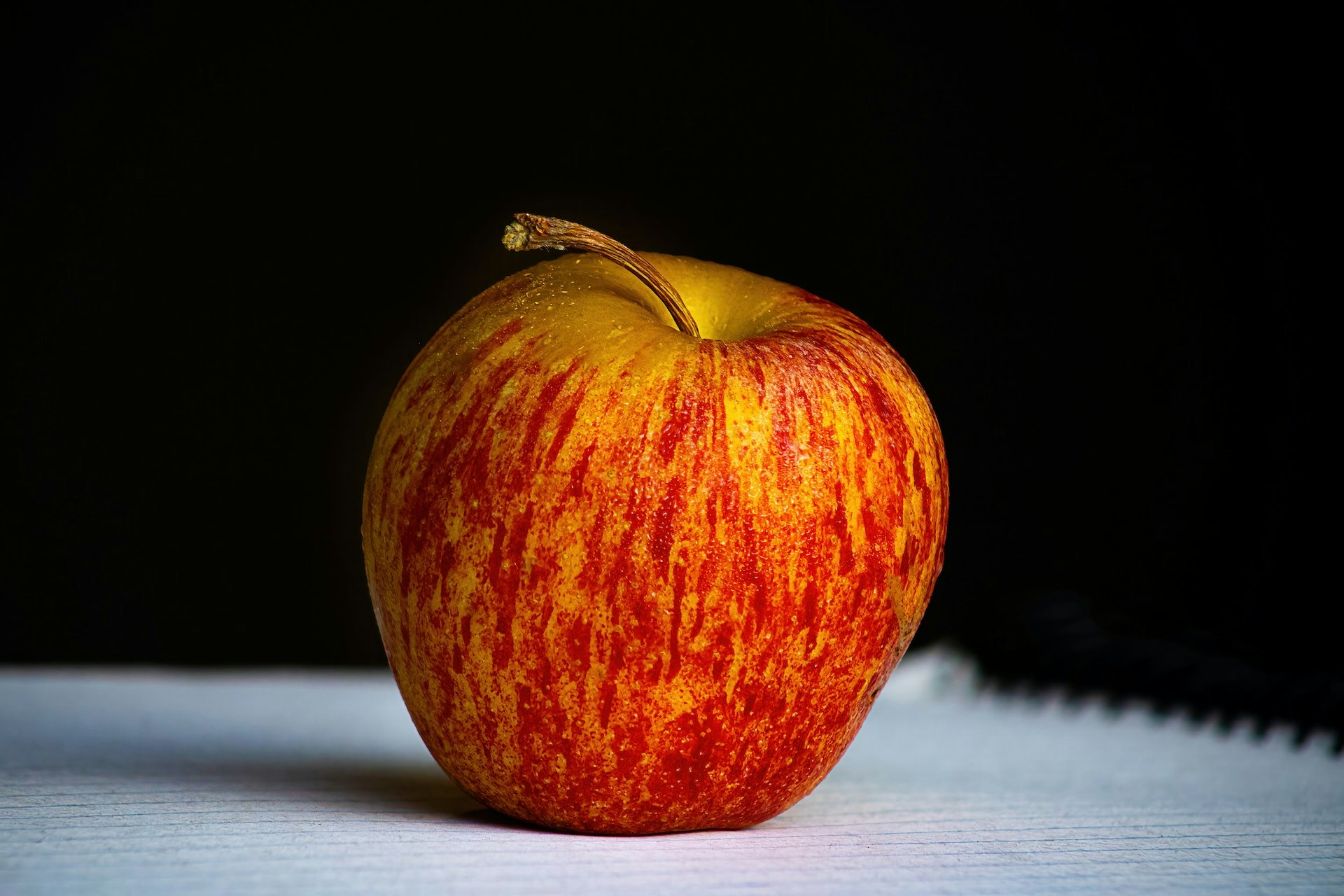
Does Apple Juice Have Fiber? How Much?
So, does apple juice have fiber? Well, it all depends on how it's made. Store-bought apple juice contains about 0.5 grams of dietary fiber. Fresh cold-pressed apple juice can contain as much as 8g. Why such a difference? You see, the fiber in apples is mostly in the skin and pulp, which often does not make it into commercially processed apple juice. Therefore, it's likely you are not be getting much fiber from your morning glass of apple juice unless it is cold-pressed. The 0.5 grams of dietary fiber you can get from a 1-cup serving of unsweetened commercial apple is far less than what you can get from a whole apple. Fiber Content of Pasteurized Apple Juice As noted, a regular 8-ounce serving of apple juice typically contains about half a gram of dietary fiber. Of course, this amount may vary a bit depending on the specific brand and how the juice was made. But it's worth noting that apple juice isn't exactly a great source of fiber. In fact, the fiber content in apple juice is relatively low compared to what most of us should be getting on a daily basis. According to the United States Department of Agriculture (USDA), it is recommended for adults to have 14 grams of dietary fiber for every 1,000 calories consumed. If your daily caloric requirement is 2,000 calories, then you should aim to consume 28 grams of fiber daily. Dietary fiber is a critical nutrient for overall well-being, and store-bought apple juice is not going to get you to your goals. If you want a drink that's packed with more fiber, then your best option would be to make your own unfiltered apple juice at home or choose cold-pressed organic apple juice. Fiber Content of Cold Pressed vs. Pasteurized Apple Juice If you want to make the most out of the health benefits of apple juice, it's best to steer clear of the processed and overly sweetened ones you can get at the store. Instead, you can opt for cold-pressed juicing which is one of the best ways to ensure that your body gets all the essential vitamins and minerals. With the cold-press method of juice extraction, you can preserve the majority of the nutrient and fiber content, making it easier for your body to absorb and utilize them efficiently. Depending on the apple variety, 1 cup of cold-pressed organic apple juice can contain as much as 8g of dietary fiber. You can also easily add other high-fiber vegetables to your juice blends, making delicious juices with even higher fiber content. What is the Fiber Content of Different Apple Varieties? Did you know that there are thousands of types of apples all over the world? But interestingly, most of them have around 2.4 grams of fiber in every 100 grams of fruit. The fiber content (grams per 100g) of the most common apple varieties is: Granny Smith 2.5 g Golden Delicious 2.4 g Gala 2.1 g Fuji 2.1 g Red Delicious 2 g Honeycrisp 1.7 g What are the Health Benefits of Fiber in Apple Juice? The soluble fiber found in cold-pressed apple juice is not only beneficial for your heart, but also for your gut health. It helps to keep everything running smoothly. And here's a bonus – cold-pressed apple juice is a great way to prevent constipation since it's loaded with fiber. Plus, the fiber can help keep you feeling satiated, so you won't be tempted to overeat. Therefore, drinking apple juice can assist in shedding some pounds as fiber plays a vital role in weight management. Fiber aids in regulating the digestive system, allowing you to feel satisfied for a longer period, helping you avoid overeating. Conclusion So, to sum up, cold-pressed apple juice is richer in fiber compared to the ones produced commercially. This means if you want to up your fiber intake, you should be mindful of the way your apple juice is prepared. Also, make sure you keep the freshly squeezed juice refrigerated to retain its nutritional goodness. Overall, apple juice can be a great source of fiber as long as you consume it in the correct form.
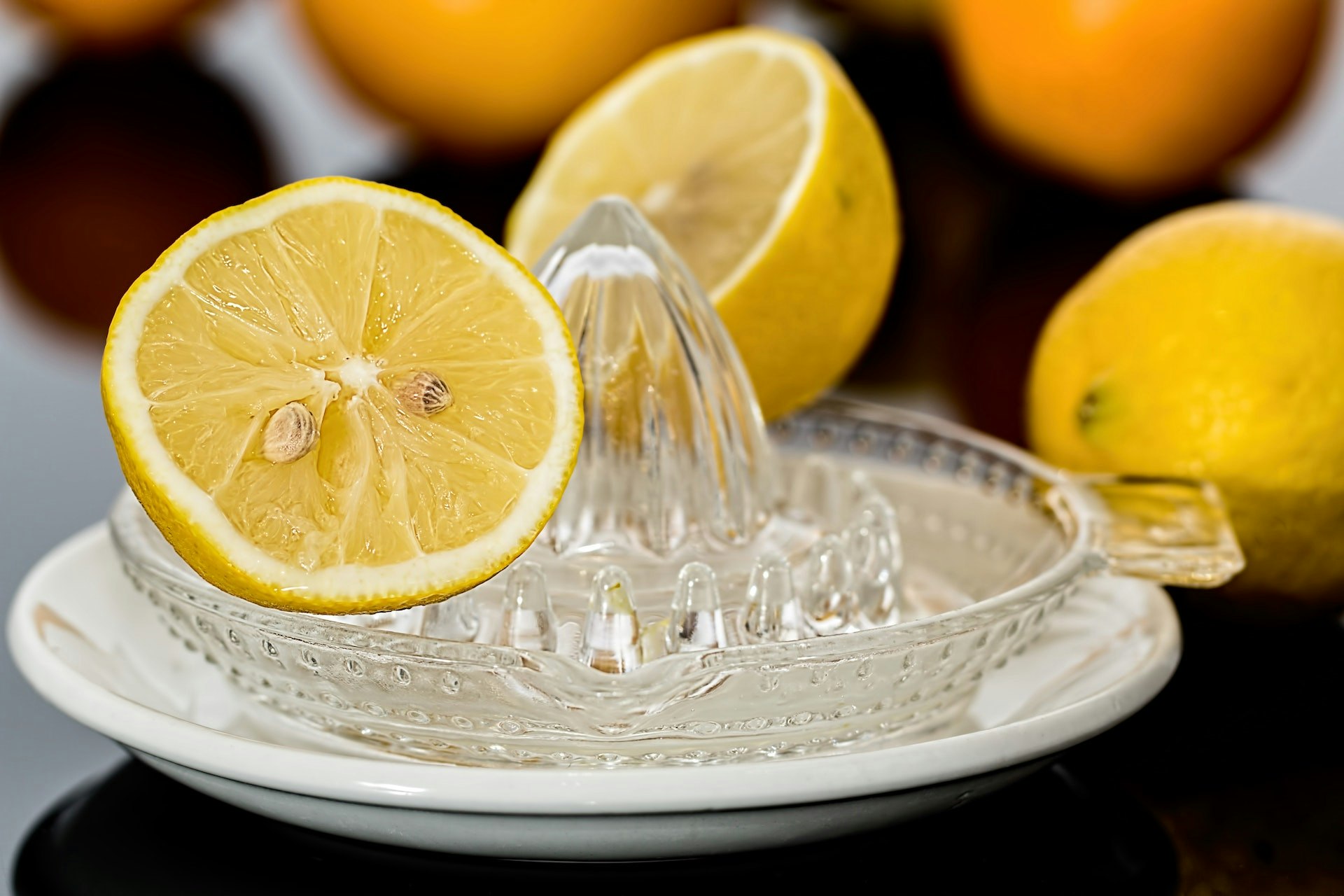
Does Lemon Juice Have Calories? How Many?
One ounce of lemon juice contains around 8 calories. Lemon juice is a great addition to any diet as it and can add a refreshing twist to your drinks and dishes. Lemon juice is not commonly consumed by itself, but rather as a flavor enhancer, ingredient, or garnish. Lemons are a powerhouse of nutrients, including vitamin C, soluble fibers, and plant compounds, which can help promote good health. Additionally, they are low in calories, making them a healthy choice for people watching their weight. How Many Calories in Pure Lemon Juice? Without any added sweeteners or other ingredients, adding lemon juice is a great way to add some flavor to your drinks or dishes without worrying about additional calories. The calorie content in lemon juice mainly comes from its natural sugars and carbs, and one fluid ounce (30 milliliters) of lemon juice contains approximately 8 calories. But, keep in mind that the exact number can vary slightly depending on the type and size of lemons used. Just a quick heads up, if you're sweetening your lemon juice with sugar, honey, or any other sweetener, the calorie count will go up. However, adding lemon juice to delicious juice blends is a great way to add zest and brightness without many additional calories or carbs. Additional Health Benefits of Pure Lemon Juice Did you know that lemon juice is not just a refreshing drink, but also a great source of vitamin C? A single cup of lemon juice contains around 26 milligrams of vitamin C, which is roughly 30% of the recommended daily intake for adults as stated by the National Institutes of Health. Vitamin C is crucial for maintaining healthy skin and connective tissues since it contributes to the production of collagen in our bodies. Conclusion In general, lemon juice is a refreshing drink that doesn't pack in too many calories and comes with a bunch of advantages for our health. The tangy taste of lemons is loved by many, and this juice is an excellent way to get a good dose of vitamin C, which is vital for your body's well-being.
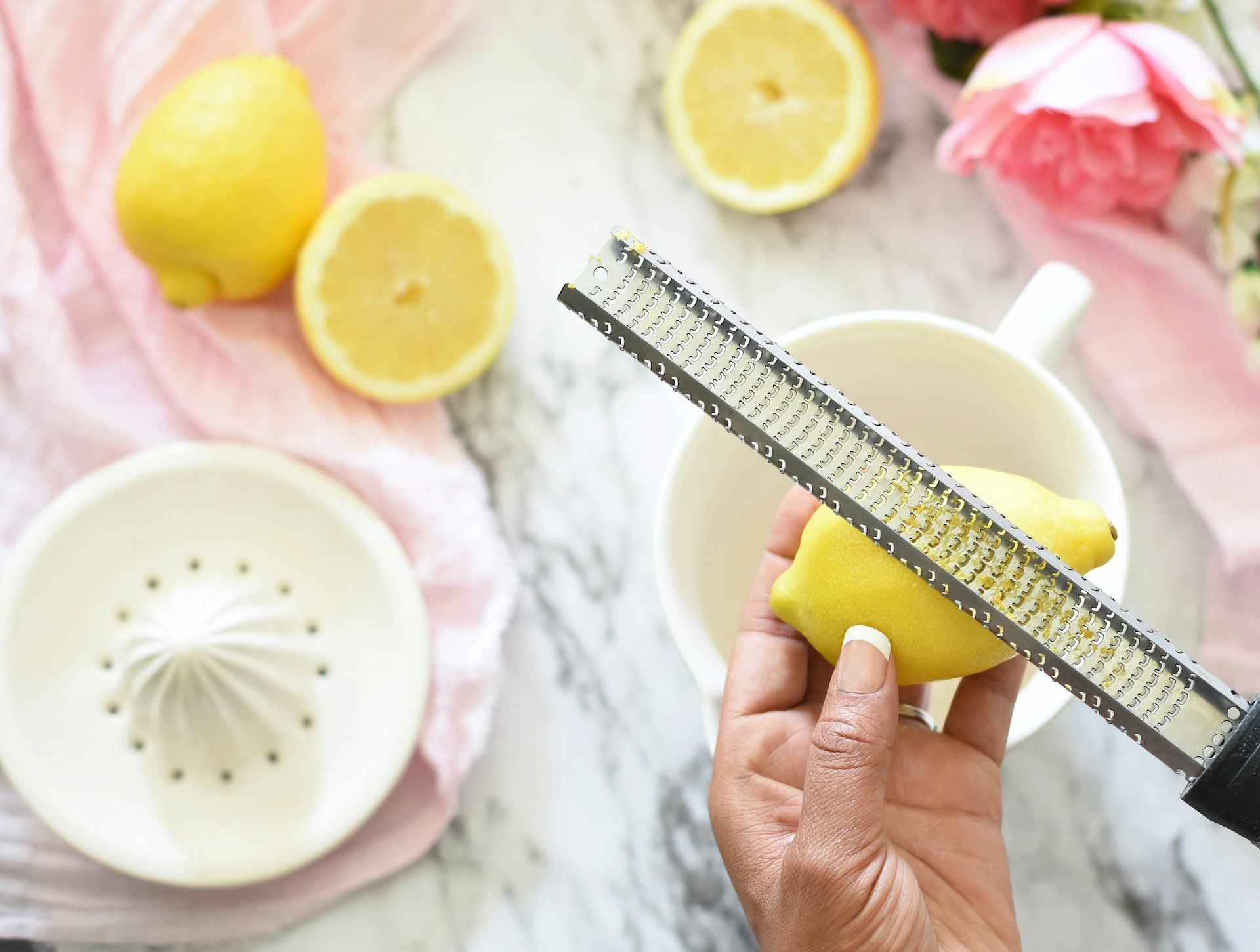
Does Lemon Juice Have Vitamin C? How Much?
Yes, lemon juice contains vitamin C. One lemon provides around 31 mg of vitamin C, which is about 45% of the recommended daily intake. Vitamin C, also known as ascorbic acid, is a water-soluble vitamin that is naturally present in citrus fruits like lemons. Cold Pressed vs. Bottled Lemon Juice When it comes to lemon juice, cold-pressed is a better option if you're looking for more vitamin C. The amount of vitamin C in the juice mostly depends on how fresh and high quality the lemons are. Cold-pressed lemon juice is made by pressing fresh lemons mechanically. On the other hand, bottled lemon juice is often made from concentrate or reconstituted juice. The way bottled lemon juice is processed can impact the amount of vitamin C it contains. Sometimes pasteurization or other preservation methods are used, which may affect the vitamin C content. If you want to make sure you get the most vitamin C from your lemon juice and don't opt for cold-pressed, it's a good idea to go for products that are labeled as “100% pure lemon juice” or “not from concentrate.” You can also get a good amount of vitamin C by squeezing the juice of whole lemons yourself since it keeps all the natural nutrients of the fruit intact. Vitamin C is a fairly sensitive material and it can easily break down when exposed to light, heat, or air. That means whether you have cold-pressed or bottled lemon juice, you need to store it properly and use it up within a reasonable time to keep all its nutritional benefits intact. Benefits and Uses of Lemon Juice Lemons are packed with nutrients that are good for our health, but let's be honest, not everyone enjoys the sour taste and high acid content that comes with it. This makes it a bit of a challenge to get all the necessary nutrients from lemons alone. If you're looking for a more delicious way to get your daily dose of vitamin C, you might want to consider snacking on some strawberries or oranges instead. Better yet, consider making a quick metabolic juice shot or a fresh and bright morning green juice to start your day off with a freshly juiced, zesty blend. Lemons are pretty versatile when it comes to their uses worldwide – they can be found in desserts, drinks, sauces, dips, and as a garnish for meat and fish dishes. Did you know that lemon juice is a great natural cleaning agent that can remove stains? Additionally, lemon oil is what makes many perfumes, soaps, and skin creams smell amazing. Almost every part of a lemon can serve a purpose in cooking and cleaning. Lemon Juice as Medicine Have you ever tried a “hot lemon” for your cold? It's a common home remedy that many people swear by. The belief is that the high amount of vitamin C in lemons helps to boost the immune system. But, is there any truth to this claim? Do lemons really contain as much ascorbic acid as we've been led to believe by our grandmothers? If you enjoy adding lemon juice to your water to increase the acidity, there's no need to worry about doing it right or wrong. Some people claim that drinking lemon water can help with weight loss and ease depression, among other things. This may be because the nutrients in lemons can offer these health advantages when consumed in sufficient amounts. It's only important to ensure that your lemon juice is stored properly. Lemon juice is also featured in The Master Cleanse, also known as The Lemonade Diet, a dietary regimen consisting of a lemon juice drink, a salt-water drink, and laxative herbal tea. Drinking lemon water is a great way to stay hydrated. Simply mix some lemon juice with water and you're good to go. It's a great way to start your day, as it can improve digestion and reduce heartburn. Plus, it's a good alternative to coffee, providing a natural energy boost without the caffeine crash. Drinking warm lemon water before bed can also aid digestion and help you sleep, especially after a heavy or spicy meal. Finally, drinking lemon water instead of juice or soda can be good for you as it helps to cut down on your sugar consumption. Conclusion Lemon juice is a great source of vitamin C, and is a great, easy way to supplement your overall intake. You can make your diet more nutritious and boost your overall health by adding lemon juice, which contains a high level of vitamin C, as part of a varied diet that also includes plenty of other fresh fruits and vegetables.
